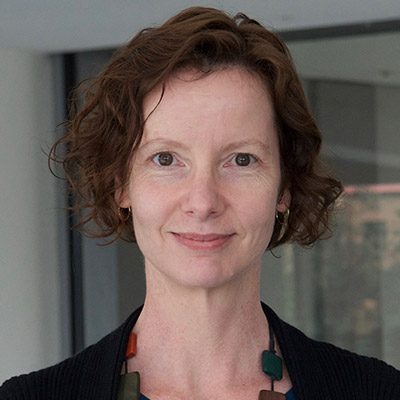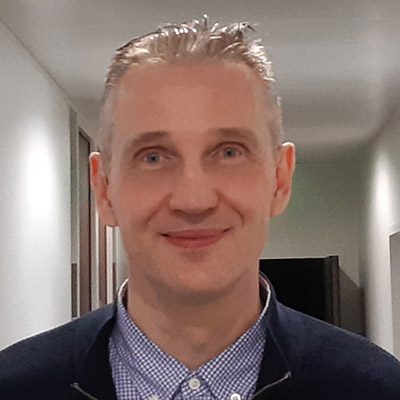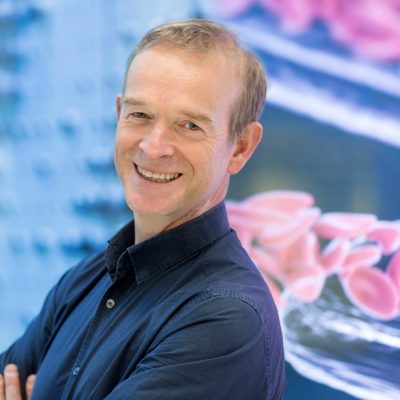
Lynne Bilston
Senior Principal Research Scientist, Neuroscience Research Australia and Professor, University of New South Wales (UNSW), Sydney, Australia
Research Interests:
From a background in biomechanical engineering, the focus of my research is on how the nervous system responds to mechanical loading – both those loads which cause injury and those which are part of normal function. Our approach spans the range from the whole body (e.g. crash testing) through individual tissues, and down to a molecular scale – integrating the data to gain an understanding of the detailed mechanisms of nervous system injury and mechanically influenced physiological functions.
I use novel imaging techniques such as tagged MRI and MR elastography to study a diverse range of in vivo mechanical functions, including obstructive sleep apnoea, muscle injury, biomechanical properties of tissues during growth and development, neural tissue mechanics, syringomyelia and hydrocephalus.
Broad Research Areas:
Injury, Biomedical Engineering, Neurotrauma, Imaging / Radiology, Population Health, Biomechanics

Lynne Bilston
Senior Principal Research Scientist, Neuroscience Research Australia and Professor, University of New South Wales (UNSW), Sydney, Australia
Research Interests:
From a background in biomechanical engineering, the focus of my research is on how the nervous system responds to mechanical loading – both those loads which cause injury and those which are part of normal function. Our approach spans the range from the whole body (e.g. crash testing) through individual tissues, and down to a molecular scale – integrating the data to gain an understanding of the detailed mechanisms of nervous system injury and mechanically influenced physiological functions.
I use novel imaging techniques such as tagged MRI and MR elastography to study a diverse range of in vivo mechanical functions, including obstructive sleep apnoea, muscle injury, biomechanical properties of tissues during growth and development, neural tissue mechanics, syringomyelia and hydrocephalus.
Broad Research Areas:
Injury, Biomedical Engineering, Neurotrauma, Imaging / Radiology, Population Health, Biomechanics

Natalia A. Trayanova
Murray B. Sachs Professor of Biomedical Engineering and Medicine, Professor of Medicine, Professor of Applied Mathematics and Statistics
Department of Biomedical Engineering, Johns Hopkins University, Baltimore, USA
Research Interests:
Cardiac electrophysiology; Computational cardiology; Machine learning in cardiology; Artificial Intelligence; Arrhythmia therapies; Sudden cardiac death
Research Summary:
Our lab conducts research in computational cardiology, developing and translating to the clinic personalized computational digital-twin technologies and machine learning approaches for the prognosis and treatment of cardiovascular disease. Our models of patients’ hearts realistically represent the functioning of the diseased organ. They are used, in combination with machine learning, for the discovery of mechanistic relationships and features that are indicative of the trajectory of the patient’s heart condition. Our work focuses on the prediction of risk of adverse cardiovascular events so that patient lives can be better protected. We also design treatment interventions that are optimal for the patient’s unique heart condition, maximizing procedure success and minimizing the potential for disease recurrence and rehospitalization.

Dirk Drasdo
Director of Research INRIA (French National Institut(ion) for Research in Computer Science and Control), Rocquencourt, France
Research interests:
Drasdo’s main research topic is modeling of multi-cellular tissue organization generating virtual twins. He established a number of agent-based model types of growing tissues in various applications. In these models, cells are mimicked as individual agents, parameterized by measurable biophysical and biokinetic parameters. Based on this technology he and his group established a process chain parameterizing single-cell-based tissue models out of histological image data in collaboration with the group of J.G. Hengstler (IfaDo) and other experimental groups. With a modeling guided experimental strategy it was able to predict a previously unrecognized order mechanism during liver regeneration and more recently to deduce the necessity for an ammonia sink mechanism after drug induced liver damage which subsequently could be identified. This line of research was advanced towards full multi-level virtual twins of liver regeneration, and is being advanced now towards digital virtual twins of liver disease progression.
Short Bio:
Dr. rer. nat. habil. Dirk Drasdo is a Research Director at INRIA Saclay (France). He graduated at RWTH Aachen and performed a PhD in physics at Max Planck Institute (MPI) for Biophysical Chemistry (Göttingen), before joining positions as postdoc or research assistant at MPI for Colloidal and Interfacial Science (Potsdam), at IMISE in Leipzig, and MPI Mathematics in the Sciences (Leipzig), as group leader at IZBI Leipzig (where he performed a habilitation in computer science), and a position as Assistant Prof. (Sen. Lect.) at Univ. of Warwick. He was / is co-PI or participated in multiple research grants in France and Germany, and as member of multiple editorial boards. Dirk

Alfons Hoekstra
Professor of Computational Science and Engineering, Informatics Institute, University of Amsterdam
Research interests:
I am affiliated to the Computational Science Lab. Our motto is:
“Nature is a Complex System that processes information. Computational Science aims to make the complexity of those systems tractable.“
Short Bio:
Prof. dr. ir. Alfons Hoekstra is a full professor in Computational Science & Engineering at the Computational Science Lab of the Informatics Institute of the University of Amsterdam. His research focusses on the Virtual Human Twin (with applications a.o. in the cardiovascular and cerebrovascular domain), on Multiscale Modeling of Complex Systems, and on High Performance Computing. He is editor of the Journal of Computational Science, member of the Strategy Board for Computational Science NL, and member of the advisory committee on Digitalisation of Research of the Dutch Science Foundation. He served as director of the Informatics Insitute of the University of Amsterdam from 2020 – 2023 and currently serves as scientific director of the technology hub for Molecular and Material Design at the University of Amsterdam.


